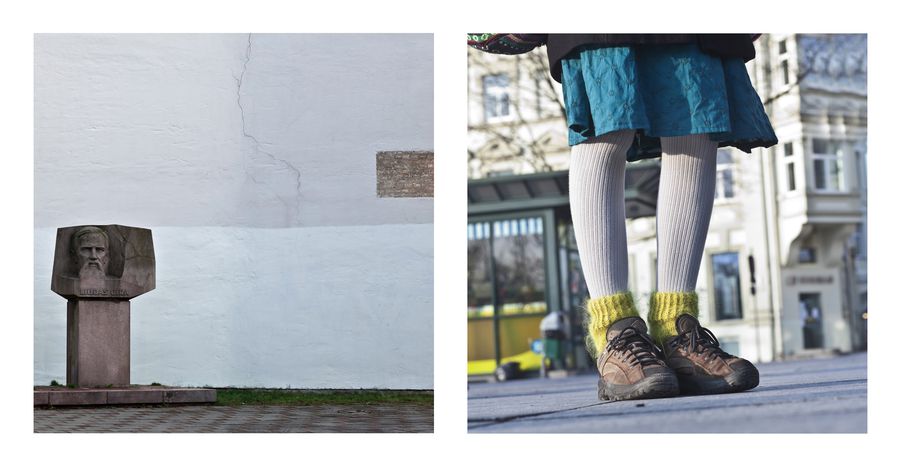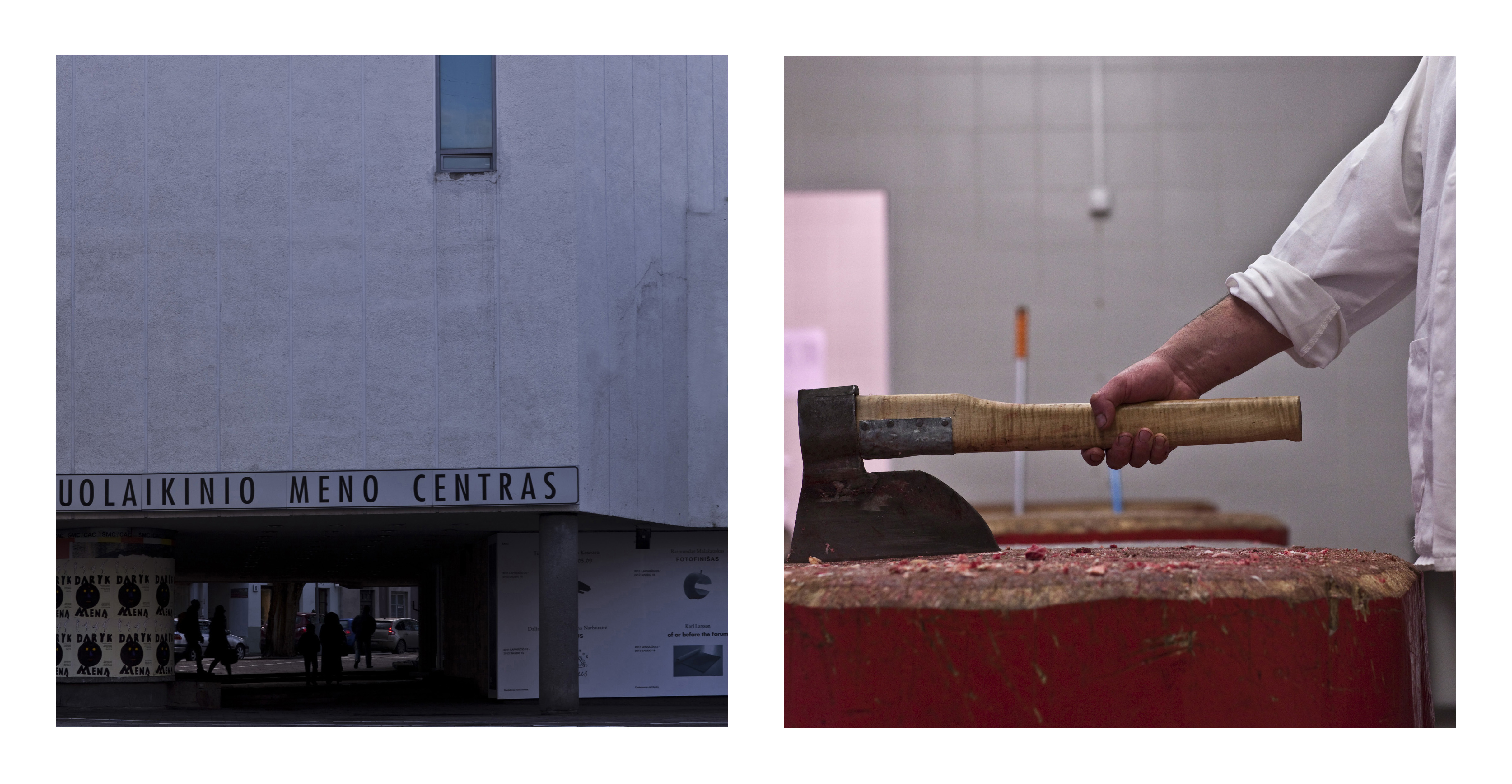
Beheading buildings and burghers in Vilnius (15 images)
Published on
Translation by:
Cafebabel ENG (NS)The succession of its towns, the hostility, the plagues, the drought, the devastation during the world war, the belated conversion to christianity, the political and social assimilation to Poland. The success of independence, nazi violence, deportations, the resistance, parliament and the television tower besieged under soviet duress, the birth of the Europa business centre skyscraper downtown... All of these fragments of Vilnius’ multicultural past remain tangible in the lines of its buildings, which cover just under a third of the surface area of the capital. Italian photographer Francesca Magistro picks apart those historical details with the citizens she meets in today’s Vilnius

Vilnius is widely considered to the baroque capital of north-eastern Europe, its style replete with irregularities and its scenes with strange combinations (Image © Francesca Magistro)

Gothic curves at St. Anne's Church (Šv. Onos bažnyčia) and a future mother (Image © Francesca Magistro)

The simplicity of the only synagogue which is open all year-round in Vilnius is reflected in this passer-by. There is a sense of immortality in both despite obvious language and religious barriers (Image © Francesca Magistro)
Read 'From San Diego to Vilnius: all Jew you need for a library in Lithuania' on cafebabel.com

Wooden houses are a feature of the city, designed along Baltic architectonic lines. The colours that the houses are painted in radiate serenity (Image © Francesca Magistro)

Raimundas Malasauskas, Virginija Januskeviciute, Asta Vaiciulyte and other artists at the Vilnius contemporary art centre (VAA), where Nida (pictured) works (Image © Francesca Magistro)

'Maybe in this I am mistaken?/ It's true I'm young, perhaps naive' - Liudas Gira, a Lithuanian poet, writer and literary critic who died in 1946 (Image © Francesca Magistro)

Survival, in memory of human lives and religious beliefs. The missing victims of soviet occupation (Sovietų okupacijos aukoms atminti) monument, alongside an orthodox priest (Image © Francesca Magistro)

The orthodox church of the holy spirit (Staciatikiu Sv. Dvasios Cerkve) is a spiritual power which is confused with material power, as symbolised by the fish. ΙΧΘΥΣ’ or Ἰησοῦς Χριστός, Θεοῦ Υἱός, Σωτήρ’ in Greek means 'Jesus Christ, son of god, saviour' (Image © Francesca Magistro)

Gintaras shows us his drawings by the national gallery of art (Nacionalinè Dailès Galerija, NDG. Image © Francesca Magistro)

Christian church (Image © Francesca Magistro)

Graffiti on the garden walls at the Vilnius academy of arts (Vilniaus Dailės Akademija) with the ancient art of tailoring. This woman's workshop, which she runs alongside her husband, runs from our hostel in Uzupis to the city centre (Image © Francesca Magistro)

Greek Doric style alongside Russian pomp (Image: © Francesca Magistro)

The church of the holy spirit (Sventosios Dvasios Baznycia) is the cult centre for Vilnius' orthodox population, says one student, Teklė (Image © Francesca Magistro)

Over to the famed Angis Tattoo Studio where people from all over Vilnius meet for a bit of counter-culture (Image © Francesca Magistro)

Food for thought at the contemporary art centre (Šiuolaikinio Meno Centras), the biggest in the Baltic countries. Food for nourishment at the food market (Image © Francesca Magistro)
This image gallery is the second edition in cafebabel.com’s 2010-2011 feature focus series on multiculturalism in Europe. Thanks to the team at cafebabel Vilnius
Translated from Vilna: cuando la arquitectura y la identidad se funden



